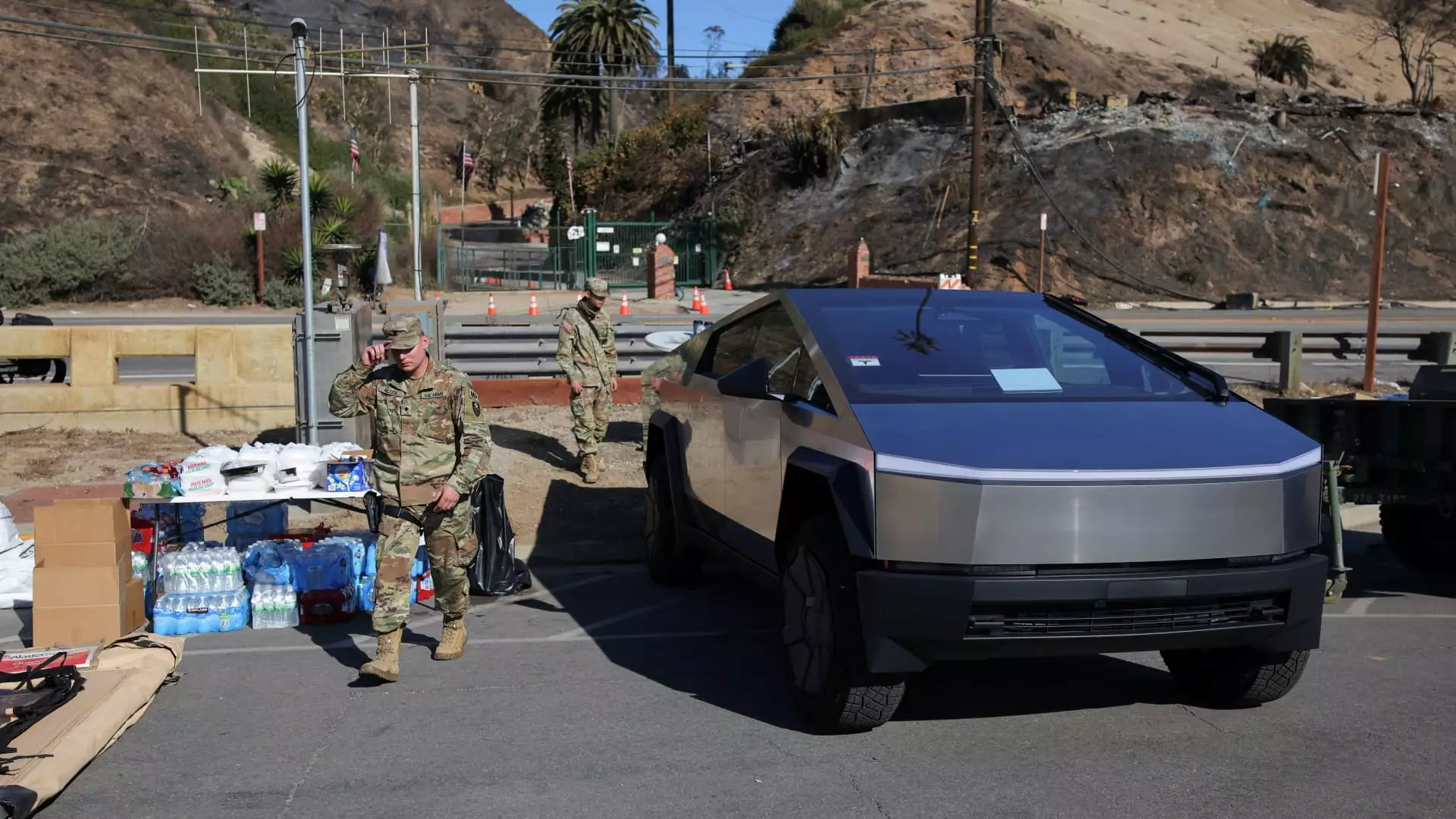Tesla recently made headlines by introducing substantial discounts on their Cybertruck vehicles. As listed on their website, potential buyers can receive up to $1,600 off new Cybertrucks, while demo versions have slashed prices by approximately $2,600. The variations in discounts are contingent on the specific configuration of the trucks. This move comes at a time when production rates for these unorthodox vehicles have reportedly slowed at Tesla’s Austin factory, raising questions regarding the overall demand versus supply dynamics for the Cybertruck.
Launch and Pricing Controversies
When CEO Elon Musk unveiled the Cybertruck back in 2019, he made bold claims regarding its pricing, estimating it would start around $40,000. However, by 2024, the base price for the vehicle had surged to around $80,000. This pricing discrepancy has become a salient issue, hindering its initial appeal and adoption among budget-conscious consumers. Furthermore, while Wall Street had initially viewed the Cybertruck as a critical factor in boosting Tesla’s automotive growth, its market performance has not lived up to earlier expectations.
Despite being recognized as a game-changer that outperformed the Ford Lightning F-150 in the U.S. market and ranking as the fifth best-selling electric vehicle (EV), the Cybertruck’s journey has not been smooth. Various challenges, including a series of recalls and production bottlenecks in Austin, have stunted growth potential. Tesla has initiated multiple recalls within a single year for issues such as defective drive inverters, which has raised concerns about manufacturing quality and reliability.
According to recent reports, Tesla’s overall vehicle deliveries experienced a slight dip year-over-year in 2024, even as demand for EVs surged globally. This decline can be attributed to a plethora of new competitors entering the EV market, which has steadily chipped away at Tesla’s once-dominant market share. Data from Cox Automotive noted an estimated 1.3 million EV sales in the U.S. for 2024, representing a growth of 7.3% from the previous year. Paradoxically, Tesla’s own sales figures fell by approximately 37,000 vehicles, illustrating the brand’s struggles amidst a rapidly evolving market landscape.
Customer Apologies and Community Support
In recent communications, Musk has publicly acknowledged the delays in Cybertruck deliveries, particularly to customers in California. His statement highlighted the dual purpose of the vehicles, as they were repurposed to deliver essential supplies and provide wireless internet services to neighborhoods affected by wildfires. While this outreach showcases Tesla’s commitment to community support, it also sheds light on the logistical challenges they face in fulfilling customer expectations. Musk’s candid apology reflects an attempt to maintain transparency with consumers while navigating the turbulence of production and supply chain hurdles.
As Tesla moves forward, the future of the Cybertruck remains uncertain. The initial excitement generated by its unique design and innovative features is now tempered by practical concerns over pricing, production delays, and increasing competition. While fostering community relationships and providing immediate relief to affected areas with their trucks is commendable, Tesla must streamline production and address quality control issues to ensure the Cybertruck’s long-term viability in the marketplace. The upcoming quarters will be crucial for Tesla, determining whether the Cybertruck can reclaim its position as a significant player or if it will be overshadowed by emerging rivals in the increasingly competitive EV sector.


Leave a Reply